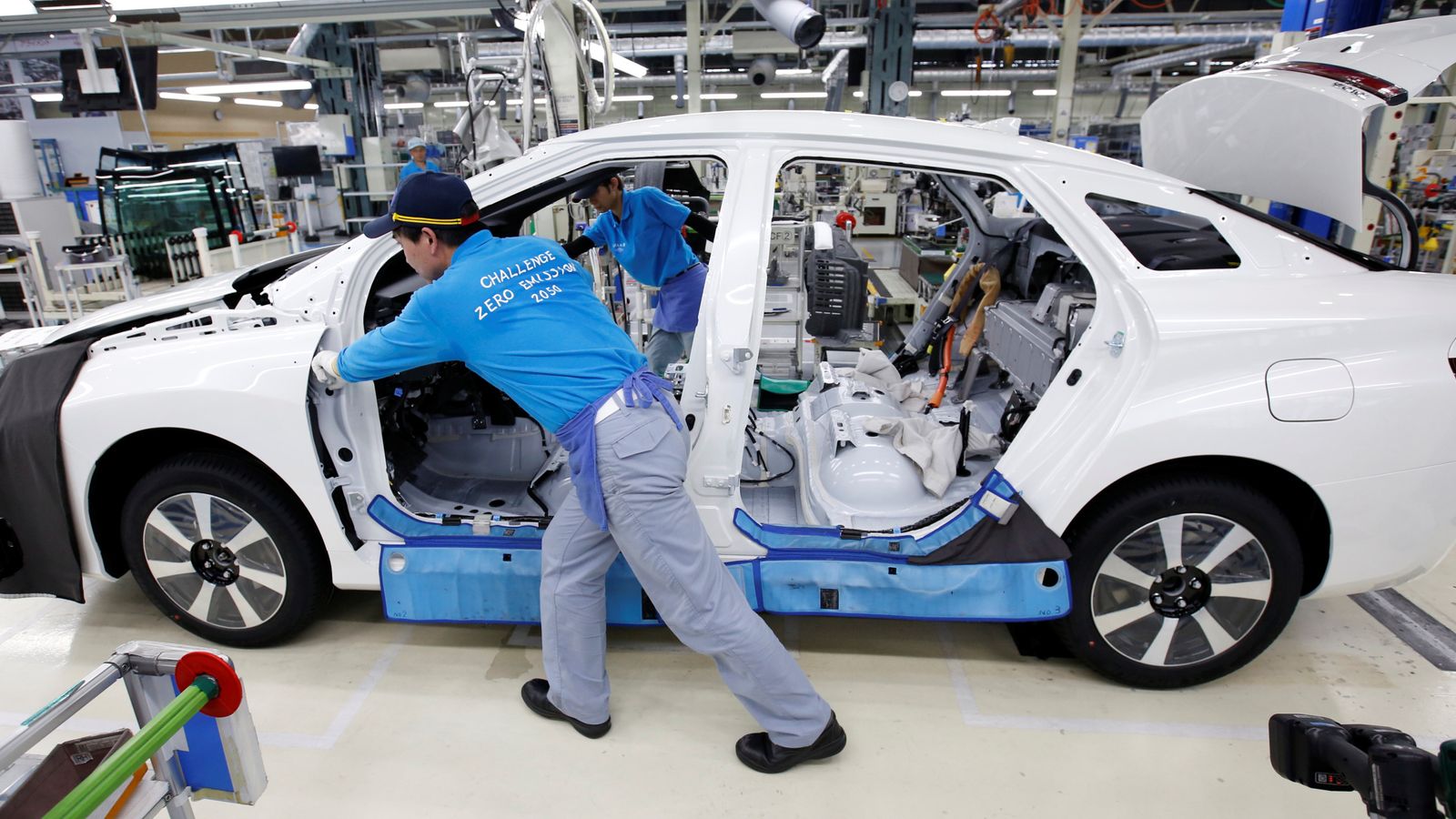Toyota is to cut production by 40% next month as it becomes the latest carmaker to be affected by the global shortage of semiconductor chips.
The Japanese company said it would reduce global output in September by around 360,000 vehicles – 140,000 of them at its Japanese plants and the rest at overseas factories.
Toyota, the world’s biggest carmaker, follows rivals including Ford, Nissan, Honda and Jaguar Land Rover – Britain’s biggest carmaker – in scaling back production thanks to the shortage.
Germany’s Volkswagen, which had already warned earlier this year of an impact, said on Thursday that it may have to cut back output even further.
The Society of Motor Manufacturers’ and Traders (SMMT), the UK industry’s lobby group, has warned that the issue is holding back its recovery after pandemic shutdowns last year.
However, Toyota told Sky News that while plants in France, Turkey and the Czech Republic would be “temporarily affected”, operations at its UK plant in Burnaston, Derbyshire, would “continue as planned, with only minor adjustments to the production plan”.
Despite September’s global production cuts, the company has reiterated a global production target of 9.3 million vehicles for the year to the end of March.
That plan already “takes into account certain risks”, Toyota executive Kazunari Kumakura told reporters.
The carmaker’s output has also come under pressure due to surges in COVID-19 cases in some of the Asian countries that supply parts used in its factories.
Yet until now it has been relatively successful in navigating the chip shortage after building up a larger stockpile as a result of a resilience plan developed after Japan’s 2011 earthquake and Fukushima nuclear disaster.
The impact of the chip shortage goes beyond the vehicle sector, with Apple warning recently that while the impact on production of its devices had so far not been as bad as feared it would worsen over coming months and extend to iPhone production.
It is also having an effect on inflation, with a surge in used car prices in both the UK and US reflecting increased demand due to the lack of supply of new vehicles.






















